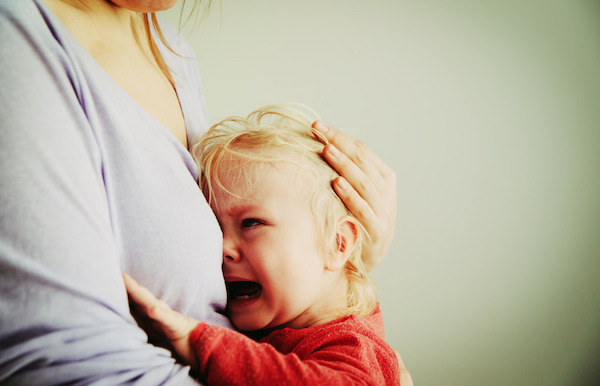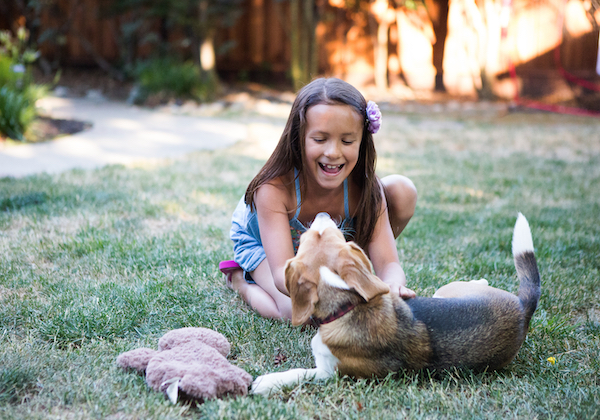Every parent of school-aged children has been through it. Some of us more times than we’d like to count.
You haven’t seen your child all day, and you meet them excitedly at the school gate. They look fine as they walk up to you and may even be happily chatting with friends. One sight of Mummy, though, and they lose it completely – total meltdown.
Tears, whining, tantrums, fighting and just in general sulking and crankiness – the afterschool meltdown is a real thing. It may be an explosion, or it may simmer in a slow burn that hits when you get home or try to get your child to do homework or take a bath.
It’s not your fault.
It’s very common to feel that you’re doing something wrong as a parent because your child seems to melt down just for you. You might even get reports from their teacher that they’ve been lovely and well-behaved all day.
Why do they seem to save their worst behaviour just for us?
It’s not because you’ve asked the wrong question or they aren’t happy to see you – it’s quite the opposite.
Your child’s been holding things together all day, interacting in a new place with new people and unpredictable situations. They’ve been required to adhere to strict rules all day about where they can go and when they do things, including basic needs like speaking, eating and going to the toilet.
They have to be constantly alert and thinking, ‘What is the right thing to do next?’ They have to deal with emotions and situations without you there, managing their own regulation. It’s a really long and tiring day for your child.
However, when your child sees you, you are instantly a place of comfort and predictability. They know how you’ll react next – they feel safe with you. Cue the meltdown.
It is exhausting to deal with and hard not to take personally.
All children will fall apart after school sometimes, and it’s even more common for children in their first year of school and those who have learning, sensory or emotional difficulties.
Here are some tips for managing the after school meltdown and how to look after yourself in the process as well.
Tips for After School Meltdowns
1. Don’t Grill Them Now
It’s natural to want to be interested in your child’s day and ask them questions as soon as you greet them, but they’ve been thinking all day. It might be better to save your questions for later, such as during dinner or when getting ready for bed.
You might also find that your child responds better to no questions at all, and instead just give them the opportunity to open up with you by doing something together like going for a walk or getting dinner ready.
2. Feed Them – Sensibly
All children are likely to be hangry after school, so food at this time usually helps.
There can be a fine line here though – don’t load them up on sugar and food that can bring about further highs and lows, but also don’t go with too structured and healthy so that you’re essentially fighting with them about what they have to eat.
Try having a range of healthy, slow-release energy food items for them to choose from (wholegrain sandwiches with cheese or peanut butter, sliced fruit and vegetables, rice crackers and dip, cheese sticks, homemade muffins, yoghurt etc.), that are ready to grab and go. Then let them select what they like.
Sometimes even giving them their whole dinner can work wonders at this time – then just a smaller evening snack or supper later on.
3. Help Your Child to Destress
Every child will have different things that help them to destress at this point. You may need to try a few different things before you work out what helps your child unwind the best after a long day.
For some, it will be a quiet time in front of the TV, for others it will be unstructured play with their toys. Others will like running around outside, doing some art and craft, reading or throwing a ball for a pet.
A bath or shower can help many kids to wind down and there’s no reason why you have to do this later in the evening. This can help to regulate their temperature as well as tending to any sensory needs. If your child likes to play in the bath you might find yourself rushing them later on, but if you pop them in the bath straight after school they can play there as long as they like.
Allowing them to isolate for a long time or slide straight into a personal screen such as an iPad is not ideal, so if you can find ways that are more interactive and screen free, this is better.
But the best thing is to let them wind down in their own way, at least for a little while.
4. Encourage Laughter
You can’t force emotions and you shouldn’t forcefully try to cheer your child up if they aren’t ready to be cheerful. But play and laughter are some of the best ways to help your child reconnect with themselves and with you.
Perhaps engage in an activity near them that they might enjoy and let them approach you when they are ready. Play a funny game with a younger sibling or a pet, draw silly pictures or read a joke book out loud.
Giving your child the chance for one on one time with you straight after school can be a wonderful release mechanism for any built-up frustrations. Often we pick up kids up and then go directly homework, swimming lessons, sporting activities, grocery shopping or other errands, chores and have-to’s.
The best thing to do straight after school may be nothing really – just be in the present moment with your child without having to be anywhere or do anything specific.
5. Teach Your Child to Release Emotions
Often the afterschool meltdowns happen because your child isn’t certain how to deal with frustrating emotions during the day. If they ‘re bottling things up the cork is guaranteed to pop at some point.
It may help to teach your child some tools and strategies to manage emotions when they have them rather than saving things for later. This could include simple mindfulness techniques such as breathing or stretching, distraction items like fidget cubes or beaded jewellery, or things like mantras or songs that help them to wind down.
6. Talk to the Teacher
Even though afterschool meltdowns are common, there may be something specific at school that ‘s worrying your child, so it helps to connect with their teacher just to check. Your teacher may have ideas about how to help your child through these moments as well as suggestions for things that can be changed at school.
Good luck and remember, as with all parenting – it’s not your fault and you’re definitely not alone!




